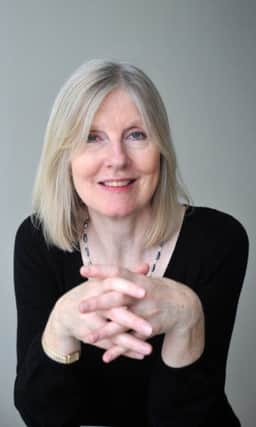Helen Dunmore on secrets,lies and espionage


With details about the murder of Alexander Litvinenko in the news again last week and recent heated discussions in Parliament about the nuclear deterrent it seems the spectre of the Cold War in some sense still hangs over the present.
That era – which was at its height in the 1950s and 60s – is the backdrop for Yorkshire-born novelist Helen Dunmore’s latest book Exposure. Set in London in 1960, it is a beautifully written, gripping spy thriller that elegantly interweaves espionage, secrets, lies and betrayal on both a political and personal level. At the novel’s centre is Lily Callington whose husband Simon is arrested, accused of using his position at the Admiralty to pass information to the Soviets. A sensitive file has gone missing and Lily believes that Simon is being sacrificed in a cover-up to protect others in positions of power. The trouble is that she doesn’t know her husband as well as she thinks she does. “I have always been fascinated by the Cold War – it was such a complex era,” says Dunmore, whose 2012 novel The Betrayal was set in Soviet Russia in 1952. “Exposure begins in 1960, before what we think of as the 60s had really begun and the shadow of the Second World War is still there. Everybody was affected by the war and that has shaped their lives. I really wanted to go back to that time of smog and privation, spy scandals and sex scandals.”
Advertisement
Hide AdAdvertisement
Hide AdA number of key characters in the novel are gay men who because of their sexuality – which was still illegal in the UK at the time – are vulnerable to blackmail. “That was very much a part of the spy scandals of that era,” says Dunmore. “Gay men were at risk from the law and that caused a fear of exposure – we forget that if you were found out you could lose everything – your job, your family and friends.” Those men were forced to, in effect, live a lie every day and a major theme of the book is what remains hidden; the idea that it is almost impossible for one person to really know another. “We all have secrets and we all have elements of our pasts that we hide from others and even from ourselves,” says Dunmore. “We are all mysteries to each other – and in Exposure everyone has a secret, everybody is hiding something.”
Even Lily, a seemingly archetypal 1960s British housewife, part-time teacher and mother of three, has a past that she shares with very few people. Having fled Nazi Germany as a child with her Jewish mother, she has deliberately erased any memory of her native language and has made every effort to become English. “Lily had to learn when she was very young that people are not to be trusted and that your whole life can be shattered very quickly,” says Dunmore. “That has happened to her once and she knows it can happen again, so that’s why she is a bit of a she-wolf when it comes to protecting her own family. Her fear drives her. She knows what fear is and she acts.” As a result, by the end of the book, Lily will have more secrets she has to keep.
Dunmore says she spent a lot time researching the period – in particular reading up on spy scandals of the time, such as the famous Portland spy ring which operated out of a very ordinary-looking house in Ruislip. “I wanted the sense that these were people who were living in suburban streets,” she says. “And I also wanted to be clear that there are real lives being destroyed because of their actions. ”
Exposure, published by Hutchinson, £16.99.